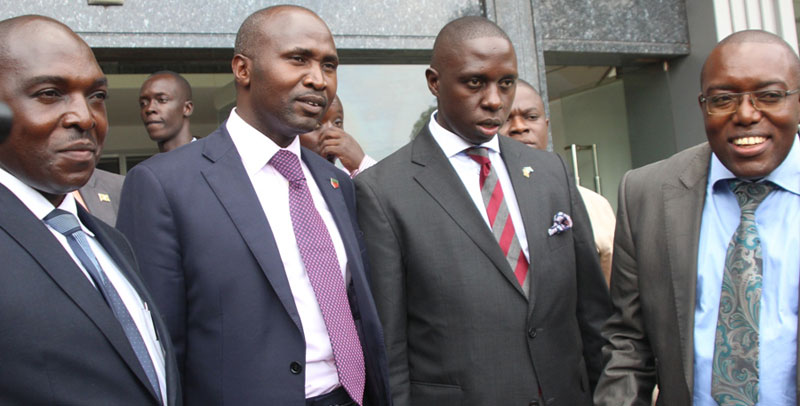There have been various attempts to rate the performance of the 9th Parliament. But, against what criteria should the success of a Parliament in a democratising country like Uganda be measured?
The above question may prove harder to answer than it appears. Whatever criteria one may come up with, however, we reckon that the contribution of Parliament to strengthening democracy should be a paramount consideration.
As a country seeks to democratise, it is only fair to expect a tough contestation for control between the Executive and the other arms of government, particularly Parliament and the Judiciary. Inevitably, therefore, the other institutions of the State need to push back against the Executive in order to assert themselves.
In some instances the 9th Parliament had to rise to defend the development of democracy in Uganda. Take the Parliament leadership’s insistence on keeping the so-called “rebel” MPs in Parliament, even against the advice of the then Attorney General, Mr Peter Nyombi.
MPs Theodore Ssekikubo, Muhammad Nsereko, BernabasTinkasimire and Wilfred Niwagaba had been dismissed by their party, the National Resistance Movement. As a result, the ruling party demanded that the MPs had to be thrown out of Parliament.
But the leadership of Parliament, under the guidance of Speaker Rebecca Kadaga, stood her ground and insisted on keeping the MPs in Parliament, a decision which was eventually upheld by the Supreme Court. Because of this move by the leadership of Parliament, it is now clear that an MP doesn’t lose his seat by just being dismissed by his party.
Before all that unfolded, the Parliamentary Appointments Committee had taken the bold step of recommending to the President, the appointing authority, that some of the individuals he had nominated for ministerial positions did not meet certain requirements.
As a result, some of the individuals who had been nominated by the President eventually did not take up their intended appointments. As far as the development of Uganda’s democracy is concerned, this act alone helped to strengthen the role of Parliament as far as vetting appointments is concerned, beyond just rubber-stumping.
Similar bold steps and decisions were carried out by the leadership of the 9th Parliament, including the decision to recall Parliament for what has come to be referred to as the “oil debate”.
The House was recalled based on a petition by certain MPs who, based on information that had come to their attention, suspected that some top ministers in Government had taken bribes from an oil company. The House was recalled and the highly billed debate happened, resulting in the formation of a committee to investigate the matter.
The allegations were eventually not proved and the accused ministers were absolved as a result, but the important matter is that Parliament stood its ground and saw to it that the issue was investigated.
The forgoing, of course, are just a few of the highlights of the 9thParliament. There were of course, several other highlights, including hosting the Inter-Parliamentary Union Assembly, among several others.








